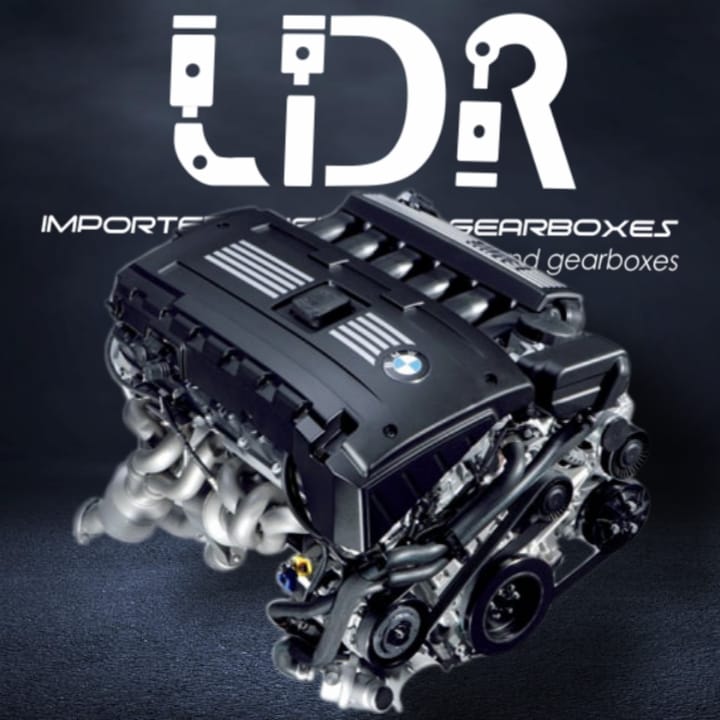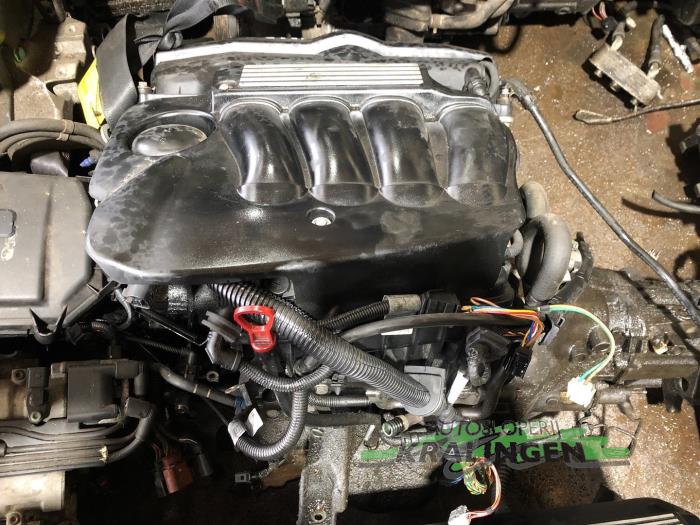Trick Features to Look for When Acquiring an Engine for Automotive Applications
When taking into consideration the purchase of an engine for vehicle applications, several crucial features call for careful examination to ensure ideal performance and capability. From power and performance abilities to sustain resilience, effectiveness, and adherence to emissions standards, each element plays a crucial duty in identifying the engine's viability for details automotive needs.
Power and Performance
When choosing an auto engine, customers prioritize power and efficiency to make certain optimal driving experience and efficiency. The power output of an engine, typically determined in horse power (HP) or kilowatts (kW), determines the velocity, leading rate, and overall capabilities of a car. Higher power scores typically lead to quicker acceleration and better performance, especially during overtaking or bring hefty tons. Performance, on the other hand, encompasses a broader range of features, consisting of gas effectiveness, emissions, reliability, and total driving characteristics. A well-performing engine not just provides power effectively but also runs efficiently across various rate varieties and driving conditions.
Purchasers typically consider the engine's torque output along with its power score. Torque, measured in pound-feet (lb-ft) or Newton-meters (Nm), mirrors the engine's rotational force, affecting the automobile's ability to tow, climb slopes, and increase from dead stop. An equilibrium in between power and torque is important for achieving a functional and responsive driving experience. In addition, aspects such as engine displacement, turbocharging, and crossbreed technologies play considerable roles in improving both power and performance levels. Inevitably, selecting an engine that uses a potent mix of power and efficiency ensures a reliable and satisfying driving experience. bmw 318ti.
Gas Performance
Enhancing fuel effectiveness is a critical factor to consider for consumers when reviewing vehicle engine options. The performance of an engine directly influences operating expense and ecological footprint. One essential element affecting fuel effectiveness is the engine's layout and modern technology. Modern engines with functions like direct fuel shot, turbocharging, and variable shutoff timing can considerably boost fuel effectiveness by boosting combustion processes and decreasing power loss. Additionally, the general weight of the engine and lorry, as well as the aerodynamics, play vital duties in identifying gas usage.

Longevity and Dependability
Achieving resilient performance and trustworthy operation is crucial for consumers reviewing the durability and dependability of automobile engines. When taking into consideration an engine for vehicle applications, sturdiness refers to the engine's capacity to hold up against wear, stress and anxiety, and rough operating problems over an extended period. Integrity, on the other hand, suggests that the engine can continually perform its designated feature without unexpected malfunctions or failings.
Customers should try to find engines created with top quality products and specific engineering to guarantee durability. Elements such as crankshafts, bearings, and pistons need to be durable to take care of the engine's power result without premature wear. Furthermore, engines outfitted with innovative cooling systems, effective lubrication, and robust filtration systems have a tendency to display greater levels of integrity.
Routine maintenance and adherence to producer referrals are additionally crucial elements in preserving an engine's sturdiness and dependability. By complying with upkeep timetables, making use of advised liquids, and resolving any kind of concerns immediately, customers can take full advantage of the life expectancy and performance of their vehicle engines. Ultimately, prioritizing durability and dependability in engine selection can lead to a more gratifying possession experience with fewer unforeseen disturbances.
Emissions Compliance
Ensuring conformity with exhausts policies is a vital aspect of evaluating auto engines for ecologically conscious customers. With raising concerns about air high quality and environmental influence, stringent emissions criteria have actually been established internationally to decrease unsafe contaminants released right into the atmosphere. When acquiring an engine for automobile applications, it is essential to consider its exhausts compliance to decrease the carbon footprint and stick to legal demands.
Modern engines are equipped with sophisticated emission control modern technologies such as catalytic converters, exhaust gas recirculation (EGR) systems, and selective catalytic decrease (SCR) to reduce dangerous exhaust gases like nitrogen oxides (NOx), carbon monoxide (CARBON MONOXIDE), and hydrocarbons (HC) These systems play a crucial function in ensuring that the this post engine fulfills the specified exhausts standards and operates within permitted limits.

Cost-effectiveness
When considering automobile engine acquisitions, reviewing cost-effectiveness is paramount for Full Article consumers seeking both performance and value. Cost-effectiveness in engine purchase entails greater than just the preliminary purchase cost. It includes the total expenditures connected to upkeep, gas intake, and possible repairs over the engine's life-span. Choosing an engine that supplies an equilibrium in between lasting financial savings and ahead of time expenses can lead to considerable benefits for the customer.
Engines that are created to maximize gas economy can lead to significant savings over time, specifically for individuals who drive regularly or over long ranges. bmw 318ti. Additionally, taking into consideration the availability and cost of extra parts and maintenance can add to the overall cost-effectiveness of an engine.

Verdict
In conclusion, when buying an engine for auto applications, it is critical to consider essential functions such as power and efficiency, gas longevity, integrity and effectiveness, emissions compliance, and cost-effectiveness. These factors are important in guaranteeing that the engine satisfies the requirements of the car and operates effectively in various driving problems - useful content bmw 318ti. Making a notified decision based on these criteria will inevitably bring about a effective and successful automotive engine acquisition
From power and efficiency abilities to fuel resilience, efficiency, and adherence to discharges requirements, each aspect plays a crucial duty in establishing the engine's suitability for specific auto requirements. Engines designed to run on different fuels such as electrical power, hybrid systems, or biofuels can offer enhanced fuel economic situation and lower emissions compared to traditional fuel or diesel engines. Consumers need to thoroughly take into consideration the fuel performance scores and technologies integrated right into automobile engines to make informed investing in decisions that align with their priorities for price savings and sustainability.
When considering an engine for vehicle applications, sturdiness refers to the engine's ability to hold up against wear, stress and anxiety, and severe operating problems over an extensive period.In final thought, when acquiring an engine for automobile applications, it is vital to consider essential attributes such as power and efficiency, fuel effectiveness, integrity and durability, discharges conformity, and cost-effectiveness.